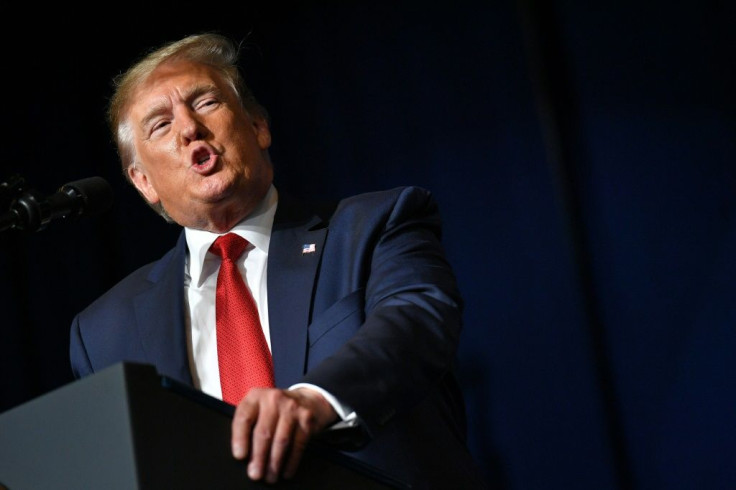Trump 'Seriously' Considers Ending US Birthright Citizenship

President Donald Trump on Wednesday reiterated a promise to do away with birthright citizenship merely by issuing an executive order that will, in effect, negate part of the U.S. Constitution.
"We're looking at that very seriously, birthright citizenship," said Trump, who previously promised to unilaterally end birthright citizenship. Trump has always shown contempt for birthright citizenship, which he sees as another form of illegal immigration.
"We're the only country in the world where a person comes in and has a baby, and the baby is essentially a citizen of the United States for 85 years with all of those benefits," he said.
"It's ridiculous. It's ridiculous. And it has to end."
Legal experts say Trump is wrong when he claims the U.S. is the only country in the world with birthright citizenship. More than 30 countries worldwide also have birthright citizenship.
Any move to amend the Constitution using only an executive order will face immediate and immense legal challenges and is in direct opposition to a ruling by the U.S. Supreme Court. In 1898, in United States v. Wong Kim Ark, the Supreme Court said a child born in the U.S. to non-citizen parents of Chinese descent was entitled to citizenship at his birth.
Former House Speaker Paul Ryan, a Republican, once publicly declared "you cannot end birthright citizenship with an executive order."
Ryan's comments echo the largest legal impediment to Trump's vow.
Judge James Ho, a respected conservative legal expert appointed by Trump to the 5th US Circuit Court of Appeals, noted in 2006 proposals concerning birthright citizenship raise serious constitutional questions due to the clear words in the 14th Amendment.
"That birthright is protected no less for children of undocumented persons than for descendants of Mayflower passengers," wrote Ho in the paper published before he became a federal judge.
Birthright citizenship is provided for by the Citizenship Clause in the 14th Amendment to the U.S. Constitution. It was originally enacted to override the 1857 Dred Scott v. Sandford decision that denied citizenship to African-Americans.
The Citizenship Clause automatically grants U.S. citizenship to any person born within and subject to the jurisdiction of the United States in accord with the 14th Amendment and the Immigration and Nationality Act (INA). Birthright citizenship also covers babies born in the territories of Puerto Rico, the Marianas (Guam and the Northern Mariana Islands) and the U.S. Virgin Islands.
© Copyright IBTimes 2024. All rights reserved.





















